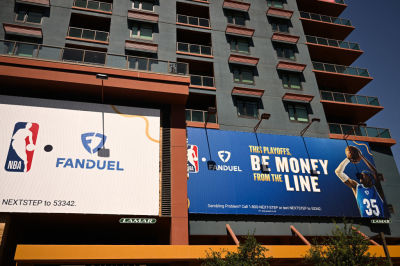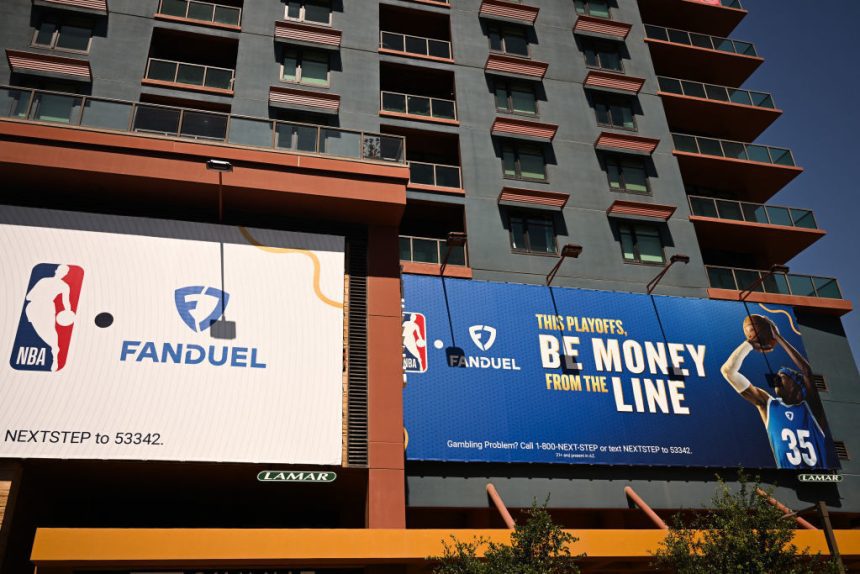
The most predictable scandal in recent sports history is now unfolding on the front pages of newspapers across the country. “U.S. Charges Insiders in N.B.A. Gambling Scams” declares a top-fold front page headline in the Friday, October 24 edition of the nation’s paper of record, The New York Times.
The article shares the news that an NBA coach and “insiders” are being investigated by the FBI and other authorities for using inside information and influence to impact or fix the outcome of NBA games.
Along with many others, I have been waiting with bated breath for several years now for such a scandal to break. Sadly, I am convinced that this scandal is merely a harbinger of an avalanche of scandals that will severely impact the “integrity” of American sports in the coming months and years.
Anyone with merely a passing knowledge of legalized gambling’s ability to corrupt knew this day was coming. We have come a long way from the banning of Pete Rose for betting on non-baseball athletic events to now a sports scene replete with advertising on TV and social media of legalized gambling and the widespread distribution of betting odds by sportscasters at all levels.
Knowing that the most avid consumers of sports are young men (who happen to be the most vulnerable to acquiring a gambling addiction), they do everything they can to induce them into gambling on their favorite sports events. It is poetic justice that the NBA is getting such a high-profile gambling scandal, considering that NBA Commissioner Adam Silver “was an early proponent of legalized sports gambling in the U.S.“
There were many of us who had studied gambling’s pernicious impact on society who attempted to sound the alarm on what a deal with the devil legalized gambling forever is. Sadly, we were largely ignored and often dismissed as “moral scolds” or “prudes just trying to deny sports fans the joy of “sports gaming.”
Why were we largely ignored by legislators, sports officials and fans? The answer is “money.” The money came pouring in. At present, it is virtually impossible to consume any sporting event or electronic media and not be bombarded with entertaining and enticing advertisements for “sports gaming.” Make no mistake, “sports gaming” is gambling, and it can be, and often is, lethally addictive.
The amount of money gambling attracts will inevitably attract organized crime just as manure attracts flies. Organized crime makes certain that the corruption is widespread and deep.
Perhaps the perfect example of how officials in the sports world have been blinded to gambling’s destructive impact is a recent announcement by the NCAA. “On Oct. 22, the NCAA approved a rule change that would allow college athletes and athletic department staffers to bet on professional sports.”
Greg Sankey, commissioner of the SEC, sent a written request to the NCAA urging them to reverse the rule change that would allow current college athletes to gamble on professional sports. The NCAA Board responded by voting to delay the rule change until Nov. 22.
Mr. Sankey responded with what might be the moral understatement of the year: “This policy change represents a major step in the wrong direction.”
I would urge the NCAA Board of Directors to listen to Mr. Sankey because he is absolutely right. It isn’t difficult to imagine young athletes betting on professional sports, becoming addicted, accumulating large debts, and becoming susceptible to doing things to influence collegiate contests to the advantage of gamblers seeking to “fix” the outcome.
The fact that this is even debatable by the NCAA Board of Directors illustrates the extent to which members have been warped and blinded to the sins of gambling.
Gambling is a zero-sum game. Gambling produces no product. In order for one gambler to win, others have to lose. In essence, gambling is theft. You win by taking someone else’s money. Others have to lose for you, or anyone else to win. Gambling is a violation of “Thou shalt not steal” and “thou shalt not covet.”
Let us pray that the country will turn back from this moral abyss, thus averting much heartbreak and ruined lives.
In the interest of full disclosure, I need to confess that I have placed one, and only one, bet in my life. It was January 1969, and I was a senior at Princeton University. I was also, having been raised in Houston, a Houston Oilers and AFL (as opposed to the NFL) fan. In a discussion in my dormitory, several of my classmates were saying that Joe Namath and the New York Jets had no chance against the Baltimore Colts. I believed the Jets were going to win and said so. My classmates challenged me, saying, “Land, put your money where your mouth is. We are placing a bet with a bookie on Trenton. Put your money on the Jets.”
In a weak moment, I agreed and put $15 on the Jets to win at 8 to 1 odds and the Jets to “cover” the 17.5 point spread between the Colts and the Jets. As you doubtless know, the Jets won 16 to 7, and I had won $130. Since I believed then, and do now, that gambling is morally wrong, I felt guilty. I promised God I would never gamble again—and I haven’t!
Then, I decided to pay a tithe on the $130 winnings and then bought a new suit for graduation ($117 went a lot further in 1969!)
Dr. Richard Land, BA (magna cum laude), Princeton; D.Phil. Oxford; and Th.M., New Orleans Baptist Theological Seminary, was president of the Southern Baptists’ Ethics & Religious Liberty Commission (1988-2013) and has served since 2013 as president of Southern Evangelical Seminary in Charlotte, NC. Dr. Land has been teaching, writing, and speaking on moral and ethical issues for the last half century in addition to pastoring several churches. He is the author of The Divided States of America, Imagine! A God Blessed America, Real Homeland Security, For Faith & Family and Send a Message to Mickey.






